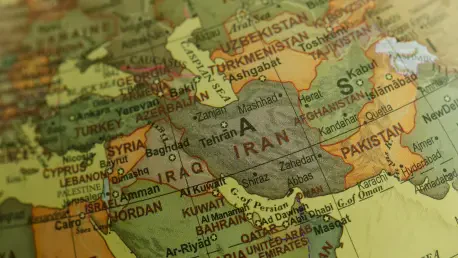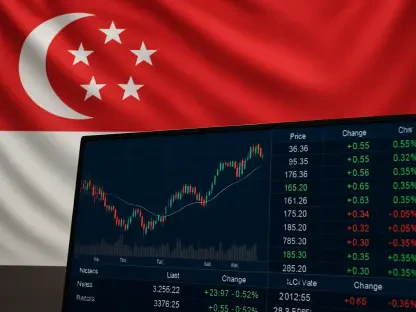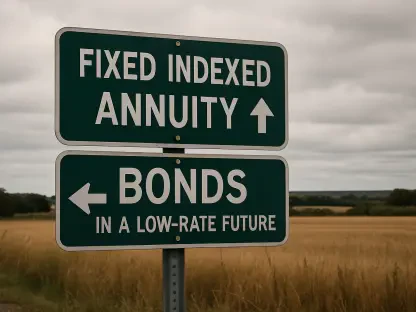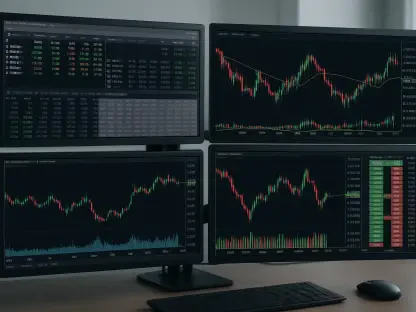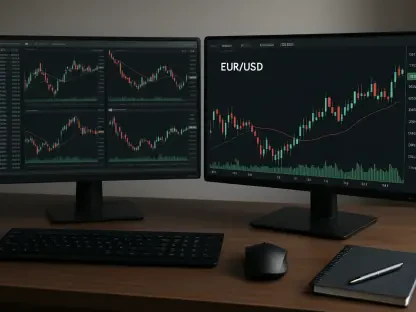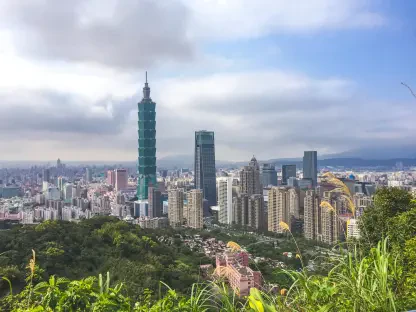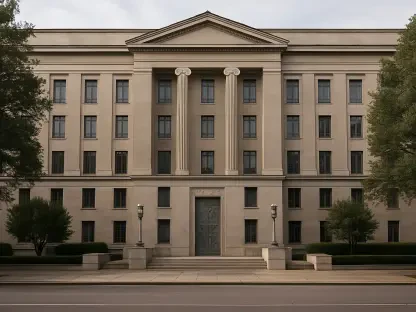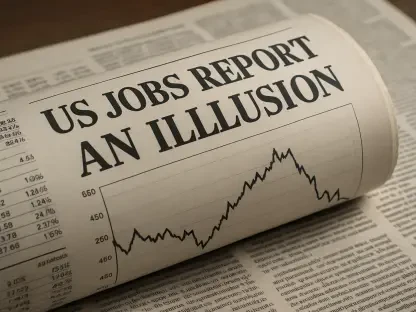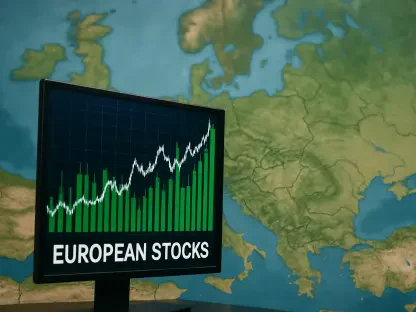In a world where investors are constantly hunting for the next big opportunity, Iraq emerges as an unlikely yet intriguing contender on the global financial stage, often sidelined due to its turbulent history. This nation of 46 million people, predominantly young and poised for rapid urbanization, is showing signs of an economic renaissance that could rival some of the most dynamic frontier markets. The Baghdad Stock Exchange, a relatively obscure player in the investment landscape, has recently posted staggering gains, drawing attention to the possibility of deep value and unique diversification for portfolios. This exploration delves into the heart of Iraq’s equity market, weighing the tantalizing prospects of growth against the backdrop of persistent geopolitical and structural risks. Is this frontier market a hidden treasure waiting to be unearthed, or does it remain a high-stakes gamble for even the most risk-tolerant investors? The answer lies in understanding the complex interplay of economic fundamentals, market performance, and the myriad challenges that continue to shape Iraq’s investment narrative.
Unlocking the Potential of a Frontier Giant
Iraq’s demographic and economic profile offers a compelling case for long-term growth that could position it as a standout among frontier markets. With two-thirds of its population under the age of 25, the country is on the cusp of a consumption-driven economic surge, mirroring the trajectory of Gulf Cooperation Council (GCC) nations during their transformative petrodollar boom in the 1970s. Projections suggest that Iraq’s GDP might double to $500 billion over the next decade, with per-capita income potentially climbing from $5,000 to $10,000. This ambitious outlook has earned Iraq the moniker “Arab Tiger” of the northern Gulf, a title that reflects optimism about its future as a regional economic force. Adding to this momentum, foreign direct investment from neighboring countries such as Kuwait, Saudi Arabia, and the UAE has been steadily increasing, signaling growing confidence in Iraq’s potential despite its complex history.
Beyond its youthful demographics, Iraq’s oil sector stands as a bedrock of economic stability, providing a foundation for broader growth. Since 2003, oil production has soared fivefold to 4.2 million barrels per day, a feat underpinned by Iraq’s role as a founding member of OPEC. Central bank reserves exceeding $100 billion and a currency pegged to the US dollar further enhance a sense of macroeconomic steadiness that seemed unattainable just a decade ago. These factors collectively paint Iraq as a frontier market with significant upside for investors willing to embrace uncertainty. However, translating this raw potential into sustained economic progress requires navigating a landscape still marked by volatility and systemic inefficiencies, a challenge that tempers enthusiasm with caution.
A Remarkable Market Resurgence
The Baghdad Stock Exchange has undergone a dramatic transformation in recent years, capturing the attention of investors seeking untapped opportunities. After a devastating period between 2015 and 2020, when the market lost 65% of its value due to conflict and a collapse in oil prices, a remarkable recovery unfolded. In 2023 and 2024, the RSISX USD Index skyrocketed with gains of 97% and 45%, respectively, surpassing its previous peak from 2014. This bull run marks a significant turnaround, reflecting renewed investor interest and broader stabilization in Iraq’s economic environment. Yet, even with such impressive performance, the market’s overall valuation remains strikingly low, trading at less than six times earnings—a sharp contrast to GCC markets and other Asian frontier economies like Sri Lanka and Pakistan.
This resurgence highlights not just a recovery, but a potential inflection point for Iraqi equities as a viable investment destination. The dramatic gains signal a shift in perception, with the market beginning to reflect Iraq’s underlying economic improvements, including rising oil output and political stabilization through democratic processes. However, the low valuations despite the rally suggest that many investors remain wary, factoring in the country’s historical instability and ongoing risks. For those with a high tolerance for uncertainty, the Baghdad Stock Exchange presents a rare chance to enter a market at a point of transformation, where early positioning could yield substantial returns if the positive momentum continues to build over time.
Bargain Valuations and Diversification Appeal
One of the most striking aspects of Iraqi equities is the deep value they offer, making them a potential goldmine for value-driven investors. For instance, Iraq’s largest Pepsi bottler trades at a mere one-sixth of the valuation multiples seen among comparable companies in Turkey or Latin America. Such disparities are emblematic of a broader trend across the Baghdad Stock Exchange, where stocks are priced at significant discounts relative to regional and global peers. This undervaluation stems not from a lack of potential, but from the pervasive perception of risk tied to Iraq’s geopolitical and economic environment. For investors willing to look past these concerns, the opportunity to acquire assets at bargain prices could prove highly lucrative as the market matures.
Equally compelling is the diversification benefit that Iraqi equities bring to investment portfolios. The Baghdad Stock Exchange exhibits low correlation with both emerging market indices and GCC bourses, positioning it as a unique asset class for global and regional investors seeking to reduce portfolio volatility. This characteristic is particularly appealing in an era of interconnected markets, where finding truly uncorrelated investments is increasingly difficult. By incorporating Iraqi stocks, investors can potentially mitigate risks associated with overexposure to more mainstream markets while tapping into a frontier economy on the rise. Nevertheless, the allure of diversification must be balanced against the very real challenges that continue to define Iraq’s investment landscape, ensuring that only the most calculated strategies succeed.
Financial Sector on the Verge of Transformation
Iraq’s banking and financial sectors represent a largely untapped frontier with immense growth potential, driven by the country’s demographic dynamics. With a predominantly young population, many of whom are underserved by existing financial institutions, there is a burgeoning demand for consumer credit, fintech solutions, and wealth management services. The emergence of a middle class is expected to fuel interest in products like credit cards, auto loans, and home mortgages, echoing patterns observed in GCC countries during their economic ascent decades ago. This secular growth trend positions Iraq’s financial sector as a key area for investment, with the possibility of exponential returns for those who enter early and support the sector’s development.
However, realizing this potential hinges on significant modernization efforts within the banking system, which currently lags behind the needs of a rapidly evolving economy. Infrastructure for financial services remains underdeveloped, and regulatory frameworks require strengthening to build trust and attract capital. Without these reforms, the sector risks failing to capitalize on the demographic dividend that could drive long-term growth. For investors, this presents a dual-edged sword: the opportunity to back a transformative industry at its infancy, paired with the challenge of navigating systemic inefficiencies. Success in this space will likely depend on partnerships with local entities and a commitment to fostering sustainable financial inclusion across Iraq’s diverse population.
Navigating a Minefield of Risks
Despite the promising outlook for Iraqi equities, the risks associated with investing in this frontier market are substantial and multifaceted. Geopolitical tensions, including ongoing conflicts in neighboring regions such as Gaza and Iran, cast a long shadow over the country’s stability. Domestic political uncertainties, including upcoming elections, further exacerbate the sense of unpredictability that has historically deterred investors. Past events like the 2015 ISIS siege of Mosul and severe oil price drops serve as sobering reminders of Iraq’s vulnerability to sudden shocks. These factors collectively contribute to a volatile investment climate, where even the most optimistic projections must be tempered by an awareness of potential disruptions.
Economic risks add another layer of complexity to the investment equation. Iraq’s economy remains heavily reliant on oil and gas, which account for 95% of government revenue, leaving it exposed to fluctuations in global energy markets. With Brent crude prices currently below the budget breakeven point of $92 per barrel, fiscal pressures are mounting, particularly as OPEC+ quotas threaten to reduce output. This dependency underscores the urgent need for diversification, yet progress on this front remains slow. Investors must grapple with the reality that macroeconomic stability, while improved, is far from assured, and any downturn in oil markets could ripple through the equity landscape, undermining even the most carefully crafted investment strategies.
Building a Sustainable Future Amid Challenges
Structural challenges in Iraq present formidable obstacles to the sustained growth of its equity market and broader economy. Decades of conflict and underinvestment have left infrastructure in dire need of repair, hampering everything from transportation to energy supply. Governance inefficiencies and widespread corruption further erode investor confidence, contributing to capital flight and stunting economic diversification. These issues are compounded by fiscal tightening on the horizon, driven by OPEC+ constraints on oil production and unchecked growth in public-sector payrolls. Addressing these systemic weaknesses is critical if Iraq is to transition from a high-risk frontier market to a stable investment destination.
Looking back, the journey of Iraqi equities reflects a fragile yet determined push toward stability, where each step forward is met with lingering doubts. The path to unlocking the full potential of this market is paved with the need for sweeping reforms across education, healthcare, and infrastructure sectors. Tackling corruption and fostering transparent governance stand as pivotal actions that shape the investment climate in retrospect. For those who venture into this space, the focus shifts to advocating for long-term structural changes, recognizing that only through sustained commitment to reform can Iraq solidify its place as a true frontier goldmine, balancing high rewards with the ever-present specter of risk.
